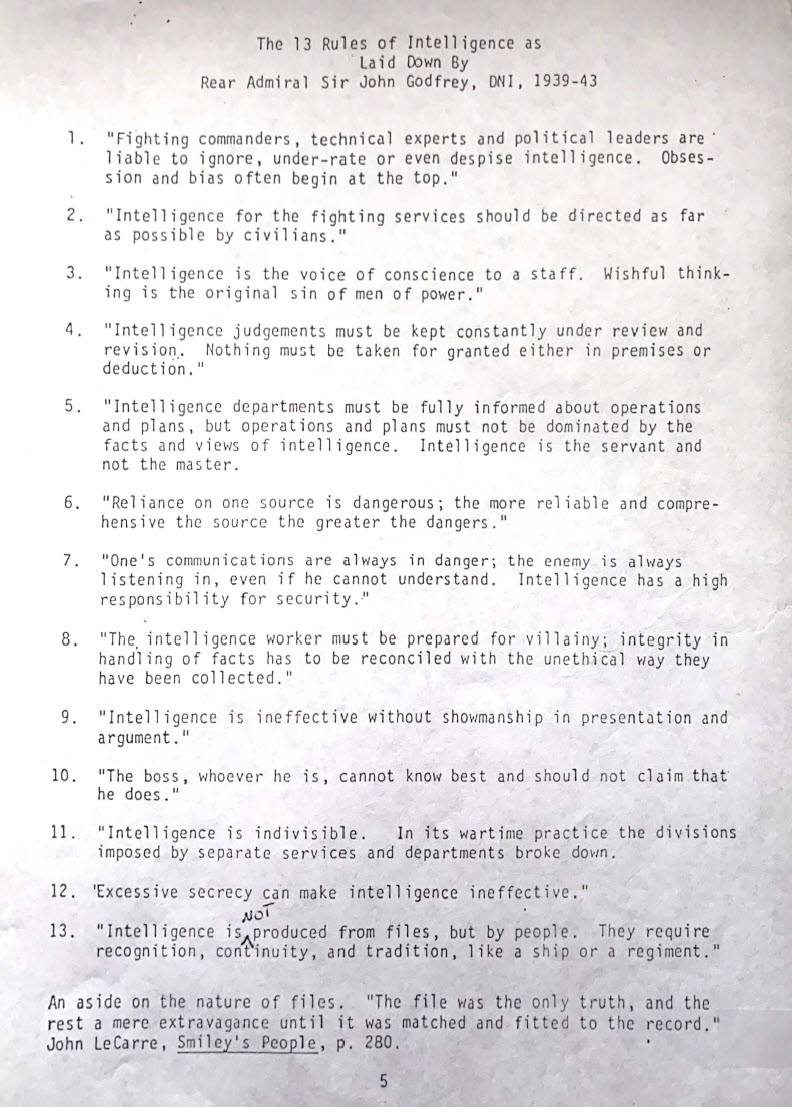From Paul’s collection:
1. “Fighting commanders, technical experts and political leaders are liable to ignore, under-rate or even despise intelligence. Obsession and bias often begin at the top.”
2. “Intelligence for the fighting services should be directed as far as possible by civilians.”
3. “Intelligence is the voice of conscience to a staff. Wishful thinking is the original sin of men of power.”
4. “Intelligence judgements must be kept constantly under review and revision. Nothing must be taken for granted either in premises or deduction.”
5. “Intelligence departments must be fully informed about operations and plans, but operations and plans must not be dominated by the facts and views of intelligence. Intelligence is the servant and not the master.”
6. “Reliance on one source is dangerous; the more reliable and comprehensive the source the greater the dangers.”
7. “One’s communications are always in danger; the enemy is always listening in, even if he cannot understand. Intelligence has a high responsibility for security.”
8. “The intelligence worker must be prepared for villainy; integrity in handling of facts has to be reconciled with the unethical way they have been collected.”
9. “Intelligence is ineffective without showmanship in presentation and argument.”
10. “The boss, whoever he is, cannot know best and should not claim that he does.”
11. “Intelligence is indivisible. In its wartime practice the divisions imposed by separate services and departments broke down.”
12. “Excessive secrecy can make intelligence ineffective.”
13. “Intelligence is not produced from files, but by people. They require recognition, continuity, and tradition, like a ship or a regiment.”
An aside on the nature of files. “The file was the only truth, and the rest a mere extravagance until it was matched and fitted to the record.” —John LeCarre, Smiley’s People, p. 280.

